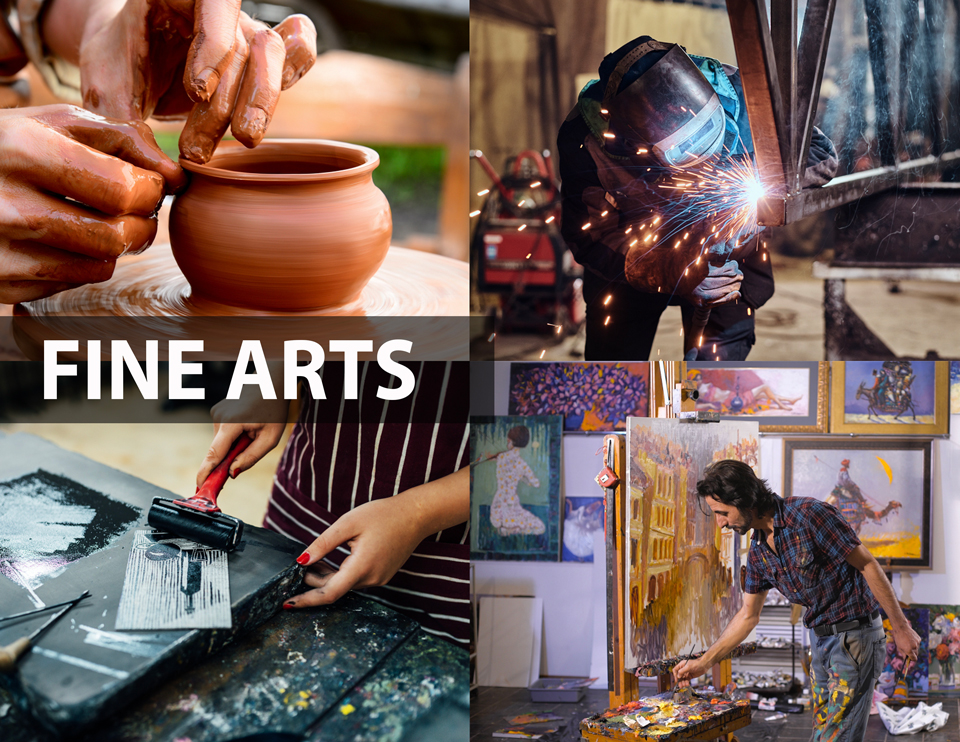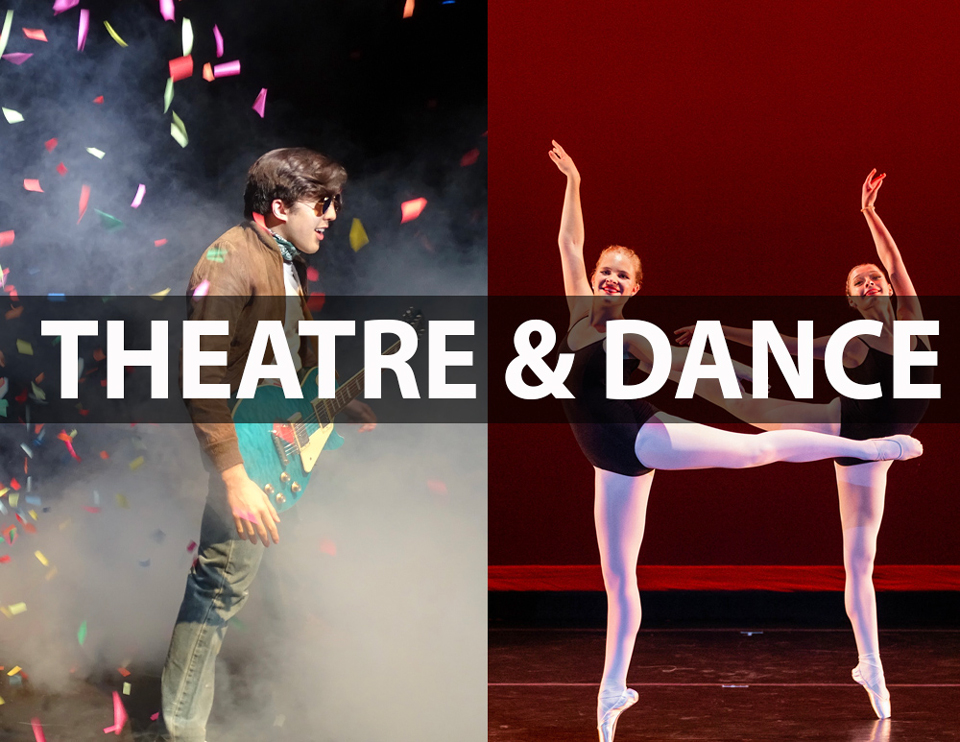Diversity, Equity, and Social Justice Council
The College of Visual and Performing Arts is committed to providing a learning environment
that is inclusive and respectful of diverse communities. As creators, we have the
power to raise awareness, create meaningful change, and impact social justice—empowering
students to become informed, responsible citizens. We are dedicated to being a community
of creatives who promote and advance students independent of gender identity, race,
ethnicity, national origin, religious affiliation, sexual orientation, socioeconomic
background, political beliefs, age, and other social identities and life experiences.
The ArtsWinthrop community encourages and appreciates expressions of different ideas,
opinions, and beliefs. Listening to and respecting individual differences is critical
in transforming a collection of diverse individuals into an inclusive, collaborative,
and creative learning community, where we take responsibility for our actions and
treat everyone with dignity.
The ArtsWinthrop Diversity, Equity, and Social Justice Council oversees the work of
the department committees to ensure that the needs of the college’s BIPOC (Black,
Indigenous, People of Color) and LGBTQ+ students are appropriately being met, including
but not limited to developing a holistic and systematic approach to modifying curriculum
(updating existing curriculum and creating new curriculum through an anti-racist,
non-gender/orientation-biased, and critical pedagogical lens); ensuring all faculty
and staff searches have appropriate diversity advocate representation; ensuring all
faculty are participating in implicit bias training on a regular basis; and ensuring
the college’s commitment to empowering students to become informed, responsible citizens
with the potential to have a positive impact on our society.

Design DEI Committee
Members include faculty and students.
The Department of Design actions:
- A DEI statement to include in our department's syllabus
- A scholarship fund to increase BIPOC enrollment
- Create a teaching mentorship for BIPOC undergrad students with the intent to increase
diversity among faculty in higher education.
- Create a workshop focusing on graduate school opportunities, experiences, enrollment
process.
- Create a DEI-focuses database and resource list for students.
- Create open workshops & gatherings (as cultural events) for all department of design
faculty, alumni, and students to discuss solutions to improve DEI in the department
and the larger design discipline
- Expand curriculum in the History of Design and Illustration to include BIPOC creatives
more fully
- Expand curriculum in History of Interior Design to include BIPOC creatives more fully

Fine Arts DEI Committee
Members include faculty and students.
- Visiting Artist and Scholar Committee along with the Fine Arts faculty put their energy
into existing partnerships and forming new ones to bring in artists and scholars from
diverse communities, so as to better represent our student body.
- Town halls are held: focused on listening to students' concerns regarding diversity,
equity, and inclusion so as to form the basis of the Fine Arts DEI committee mission
and to create action items for the department to fulfill our goal to create a culture
of inclusion in our courses and department.
- Action items include:
- Conduct workshops for faculty members to reflect on inclusive teaching practices and
address microagressions that may occur inside and outside the classroom
- Facilitate workshop for faculty members to establish strategies and procedures to
use in the classroom when getting to know our students' preferred pronouns and names.
- Create DEI syllabus statement.
- Department chair works with Admissions to ensure we are recruiting from schools with
diverse communities.
- Department chair will work on designating some scholarship funds specifically for
minority students.
- Faculty will continue to build partnerships to bring artists and scholars from diverse
communities so as to better represent our student body.
- Department chair will follow up with the Student Affairs to voice concerns from our
veteran students. The Fine Arts department will act as a liasion in future difficult
situations for our veteran students.

Music DEI Committee
Members include faculty and students.
- The committee discussed what could be done to make the music cirriculum more inclusive.
Creating a stand-alone World Music course or a third music history class that would
come from an ethnomusicology focus was mentioned. Within the confines of a very tight
curriculum schedule as mandated by the National Association of Schools of Music (NASM)
it was discussed embedding more world music course material into the current curriculum
would be more feasible.
- In terms of repertory, the committee encourages instructors to compile lists of examples
that are more inclusive into a shared list.
- Instructors encourage students to seek out diverse works which represent a wide variety
of races, cultures, and genders.

Theatre and Dance DEI Committee
All faculty members and students in the Department of Theatre and Dance will serve
as a committee-of-the-whole focused on building, promoting, and continually re-evaluating
diversity, equity, and inclusion in all our programs. We embrace the design and implementation
of curriculum and the creation of production opportunities that celebrate diverse experiences across sex/gender, disability, race, sexuality, region, class/caste,
religious belief/faith, generation, and ethnicity/nation. We work to develop and activate
policies that remove barriers, promote fairness, and provide equitable access for all students, faculty, and staff. Finally, our department is committed
to the recruitment, full inclusion, and retention of faculty, staff, students, and visiting artists from all socio-cultural
backgrounds, without the expectation or assumption of representation.
Actions taken:
Gender/Sex:
- Removed gender specific language from dress policies for dance technique courses
- Opened up Rockettes to cis and trans-male students
- Revised casting requirement for productions with more inclusive language
- Produced the department’s first fully trans-gender show, Jon Jory’s Boy Meets Girl, directed by a student
Class/Caste & Ethnicity:
- Offering more upper-level courses in Jazz and Tap to balance traditional genres like Ballet and Modern
- Added financial need to considerations for the Producers Circle Scholarships
- Moved away from expensive, printed anthologies to digital editions through Dacus
- Produced Lydia Diamond’s Stick Fly about upper-class and working-class African Americans, with guest director Quentin
Talley ‘03
Race & Ethnicity/Nation:
- Made THRT 442, African American Theatre, a writing-intensive course, so students can substitute this course for THRT 386, Theatre History and Literature II
- Produced Lynn Nottage’s By The Way Meet Vera Stark about race and Hollywood, with guest director Corlis Hayes
Religion/Faith:
- Produced Brandon Jacobs Jenkins’ Everybody, a modern adaptation of a medieval morality play, directed by a student



